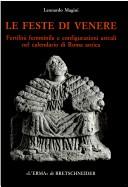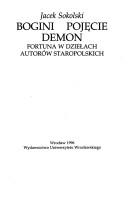| Listing 1 - 10 of 17 | << page >> |
Sort by
|
Book
Year: 1976 Publisher: Folcroft (Pa.) : Folcroft Library Editions,
Abstract | Keywords | Export | Availability | Bookmark
 Loading...
Loading...Choose an application
- Reference Manager
- EndNote
- RefWorks (Direct export to RefWorks)
Image
Year: 1495 Publisher: [Nürnberg] [Albrecht Dürer]
Abstract | Keywords | Export | Availability | Bookmark
 Loading...
Loading...Choose an application
- Reference Manager
- EndNote
- RefWorks (Direct export to RefWorks)
Book
Abstract | Keywords | Export | Availability | Bookmark
 Loading...
Loading...Choose an application
- Reference Manager
- EndNote
- RefWorks (Direct export to RefWorks)
Book
Year: 1967 Publisher: New York : Octagon Books,
Abstract | Keywords | Export | Availability | Bookmark
 Loading...
Loading...Choose an application
- Reference Manager
- EndNote
- RefWorks (Direct export to RefWorks)
Fortuna (Roman deity). --- Literature, Medieval --- History and criticism.
Book
Year: 1970 Publisher: Stuttgart : Metzler,
Abstract | Keywords | Export | Availability | Bookmark
 Loading...
Loading...Choose an application
- Reference Manager
- EndNote
- RefWorks (Direct export to RefWorks)
Fortuna (Roman deity) in literature. --- German literature --- Baroque literature --- Emblems --- History and criticism. --- History
Book
ISBN: 9781912554621 1912554623 Year: 2021 Publisher: London Turnhout Harvey Miller Publishers
Abstract | Keywords | Export | Availability | Bookmark
 Loading...
Loading...Choose an application
- Reference Manager
- EndNote
- RefWorks (Direct export to RefWorks)
The author discusses the Mantuan fresco’s key position in the iconographic Nachleben of the Kairos/Occasio figure, and the way the theme was accustomed in the Quattrocento and the transition from the Middle Ages to the Renaissance. The ancient Greeks had a name for the joy as well as the sorrow of an occasion that suddenly presents itself, but disappears just as swiftly: kairos, or in Latin occasio. Using the Mantua grisaille as starting point and leading motif, Barbara Baert guides us in her own intriguing way through the history of the representation of this figure in art. How did the archaic Greek Kairos model survive in the Quattrocento? Which appearances did Kairos take on along the way and how can we explain his mutations? The author shows us how the semantic and rhetorical expansion of the concept kairos/occasio brought about gender switches and conflations with other personifications of time and fate. Grasping the lock of hair of Kairos/Occasio, spinning the wheel of fortune of Tyche/Fortuna, acting as the mast of the ship and holding the billowing sails, she steers us through depictions of the motionlessness of the moment throughout history before dropping anchor in the fascinating vocabulary of Aby Warburg. During this journey, she invites us to go offshore looking for a new critical moment that presents itself as a powerful opening of possibilities.
Kairos (The Greek word) --- Fortuna [Roman deity] --- Grisaille painting --- Warburg, Aby --- Iconography --- grisaille --- iconography --- personification --- Mantegna, Andrea

ISBN: 8870629414 9788870629415 Year: 1996 Publisher: Roma: L'Erma di Bretschneider,
Abstract | Keywords | Export | Availability | Bookmark
 Loading...
Loading...Choose an application
- Reference Manager
- EndNote
- RefWorks (Direct export to RefWorks)
Fortuna (Roman deity) --- Venus (Roman deity) --- Fertility cults --- Cult --- Rome --- Religious life and customs --- -Fortuna (Roman deity) --- -Venus (Roman deity) --- -Cults, Fertility --- Cults --- Religious life and customs. --- -Cult --- Cults, Fertility --- Fortuna (Roman deity) - Cult --- Venus (Roman deity) - Cult --- Fertility cults - Rome --- Rome - Religious life and customs
Book
Year: 1970 Publisher: Stuttgart : Metzler,
Abstract | Keywords | Export | Availability | Bookmark
 Loading...
Loading...Choose an application
- Reference Manager
- EndNote
- RefWorks (Direct export to RefWorks)
Fortuna (Roman deity) --- German literature --- Baroque literature --- Emblems --- Fortuna (Divinité romaine) --- Littérature allemande --- Littérature baroque --- History and criticism --- Histoire et critique

ISBN: 8322913648 9788322913642 Year: 1996 Volume: 1760 Publisher: Wrocław: Wydawnictwo uniwersytetu Wrocławskiego,
Abstract | Keywords | Export | Availability | Bookmark
 Loading...
Loading...Choose an application
- Reference Manager
- EndNote
- RefWorks (Direct export to RefWorks)
Polish literature --- Latin literature, Medieval and modern --- Fortuna (Roman deity) in literature. --- History and criticism. --- Fortuna (Roman deity) in literature --- -Polish literature --- -History and criticism --- History and criticism --- Polish literature - 16th century - History and criticism. --- Polish literature - 17th century - History and criticism. --- Latin literature, Medieval and modern - Poland - History and criticism. --- Démon --- Littérature
Book
ISBN: 9782745316806 274531680X Year: 2007 Volume: 9 Publisher: Paris: H. Champion,
Abstract | Keywords | Export | Availability | Bookmark
 Loading...
Loading...Choose an application
- Reference Manager
- EndNote
- RefWorks (Direct export to RefWorks)
Comparative literature --- Thematology --- anno 500-1499 --- Fortuna (Roman deity) in literature. --- Fate and fatalism in literature. --- Literature, Medieval --- Fortuna (Divinité romaine) dans la littérature --- Destin et fatalisme dans la littérature --- Littérature médiévale --- History and criticism. --- Histoire et critique --- fortune (allégorie) --- littérature française --- Fortune in literature --- Rhetoric, Medieval --- History and criticism --- Fortuna --- In literature --- Fortuna (Divinité romaine) dans la littérature --- Destin et fatalisme dans la littérature --- Littérature médiévale --- Literature, Medieval - History and criticism --- Fortuna - (Roman deity) - In literature --- Fortuna - (Roman deity)
| Listing 1 - 10 of 17 | << page >> |
Sort by
|

 Search
Search Feedback
Feedback About UniCat
About UniCat  Help
Help News
News